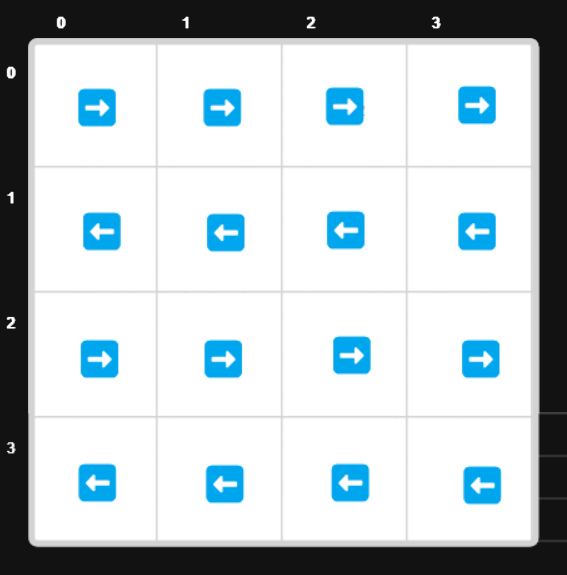Problem Summary: Minimum Cost to Make a Valid Path in a Grid
You are given a grid with m x n dimensions, where each cell contains an arrow pointing to one of four directions:
- Right (1): Move to the cell on the right.
- Left (2): Move to the cell on the left.
- Down (3): Move to the cell below.
- Up (4): Move to the cell above.
- You start at the top-left corner
(0, 0)and aim to reach the bottom-right corner(m-1, n-1)by following the arrows. - If necessary, you can modify the arrow in a cell at a cost of
1. - The goal is to calculate the minimum cost required to create at least one valid path from the start to the end of the grid.
Examples:
-
Input:
[[1,1,1,1],[2,2,2,2],[1,1,1,1],[2,2,2,2]]

Output:
3Explanation: Modify arrows in 3 cells to create a valid path from
(0, 0)to(3, 3). -
Input:
[[1,1,3],[3,2,2],[1,1,4]]Output:
0
Explanation: A valid path already exists without any modifications. -
Input:
[[1,2],[4,3]]
Output:1
Explanation: Modify one cell's arrow to create a valid path.
Constraints:
1 <= m, n <= 100- Each cell contains a value from
1to4.
Category:- Leetcode Problem of the Day
- DP
- Graphs
Programming Language: - Java
Reference Link:
https://leetcode.com/problems/minimum-cost-to-make-at-least-one-valid-path-in-a-grid/description/
Java
Output:
Loading component...
Loading component...